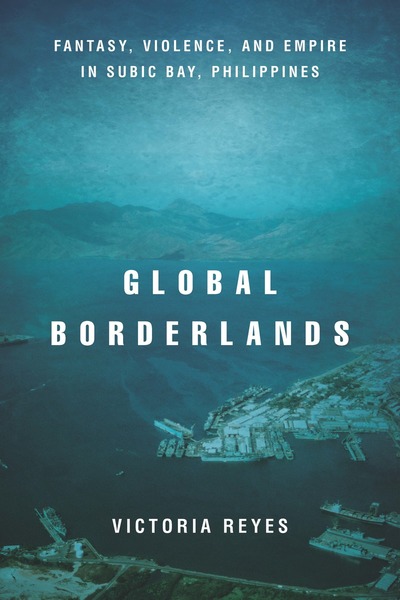
2019
312 pages.
from $30.00
Hardcover ISBN: 9781503607996
Paperback ISBN: 9781503609419
Ebook ISBN: 9781503609426
Silver Medal in the 2020 Independent Publisher Book Awards (IPPY) - Australia/New Zealand: Best Regional Non-Fiction category, sponsored by the Independent Publisher Book Awards.
Winner of the 2019-20 Emory Elliot Book Award, sponsored by Center for Ideas and Society at University of California, Riverside.
Runner-Up in the 2021 Edwin H. Sutherland Award, sponsored by the American Society of Criminology.
Winner of the 2020 Choice Award for Outstanding Academic Title, sponsored by the American Library Association.
Honorable Mention in the 2020 PEWS Immanuel Wallerstein Memorial Book Award, sponsored by the American Sociological Association (ASA) - Political Economy of the World System Section (PEWS).
Honorable Mention in the 2020 PSWC Outstanding Book Award, sponsored by the American Sociological Association (ASA) - Peace, War, and Social Conflict Section (PSWC).
Honorable Mention in the 2020 ASA Sociology of Law Distinguished Book Award, sponsored by the American Sociological Association (ASA) - Sociology of Law Section.
Honorable Mention in the 2021 Association for Asian American Studies Book Award for Outstanding Achievement in the Social Sciences.
The U.S. military continues to be an overt presence in the Philippines, and a reminder of the country's colonial past. Using Subic Bay (a former U.S. military base, now a Freeport Zone) as a case study, Victoria Reyes argues that its defining feature is its ability to elicit multiple meanings. For some, it is a symbol of imperialism and inequality, while for others, it projects utopian visions of wealth and status.
Drawing on archival and ethnographic data, Reyes describes the everyday experiences of people living and working in Subic Bay, and makes a case for critically examining similar spaces across the world. These foreign-controlled, semi-autonomous zones of international exchange are what she calls global borderlands. While they can take many forms, ranging from overseas military bases to tourist resorts, they all have key features in common. This new unit of globalization provides a window into broader economic and political relations, the consequences of legal ambiguity, and the continuously reimagined identities of the people living there. Rejecting colonialism as merely a historical backdrop, Reyes demonstrates how it is omnipresent in our modern world.
About the author
Victoria Reyes is Assistant Professor of Sociology at University of California, Riverside.
"Victoria Reyes brings us into a world that few observers have dared enter: the 'global borderland' that is the Philippines' Subic Bay, a former American military base. Through this invaluable and innovative ethnography, readers get to see, in vivid richness, the complex workings of money, love, sex, and power that characterize the afterlives of America's military empire in the Pacific. Sociology needs more historical ethnographies like this one."
—Julian Go, author of Postcolonial Thought and Social Theory
"Rarely can a study account for practices of globalization from above and below while situating the events of today in its colonial past, but Victoria Reyes accomplishes this extraordinary feat with her concept of 'global borderlands.' This is a wide-reaching study that should be of interest to anthropologists, geographers, and legal scholars, and sociologists of intimacy, globalization, and economics."
—Rhacel Parreñas, Professor of Sociology and Gender Studies, University of Southern California
"Global Borderlands has the makings of a scholarly classic, using methodologies from history, sociology, and anthropology to intervene in a broad range of fields, most notably borderland studies....Interwoven through each chapter is an engagingly descriptive ethnography with theoretical insights, which will appeal to scholars and students alike. Although the Subic Bay Freeport Zone in the Philippines, once a US naval base, is [Reyes'] case study, the book can be read productively by anyone working within borderland studies. Essential."
—M. J. Wert, CHOICE
"The recent work of sociologists on the Philippines has contributed a great deal to our understanding of the negotiations of class, race, and place in the archipelago, and this work by Reyes certainly adds to that rich and burgeoning subfield. Global Borderlands is a text that opens up a great deal of possible questions in the context of borderlands studies, international relations between the United States and the Philippines, and the everyday act of place and meaning making in spaces where sovereignty may be questioned."
—Mark John Sanchez, H-Diplo
"Global Borderlands offers a thought-provoking conceptual framework that cannot but enrich our understanding of globalization as well as international politics....By relying on multiple methods and on an interdisciplinary approach, Reyes convincingly conveys to the readers the dynamism and fluidity that concepts like sovereignty, power, inequality, as well as social interactions acquire in these global borderlands."
—Alice Dell'Era, New Global Studies
"Victoria Reyes counters a simplistic narrative of American neoimperial dominance through military bases in international countries. Instead, the book reveals the complexities of contested sovereignties and their manifestations in United States and Philippine relations....Global Borderlands is an immensely engaging read."
—Amy Kahng, Ethnic Studies Review
"Global Borderlands is a book that should be taken seriously on methodological, empirical, and theoretical grounds. Scholars of globalization, culture, law, and urban studies in particular should pay attention to the lessons that Reyes mines from Subic Bay."
—Annie Hikido, American Journal of Sociology
"There is much to like about Global Borderlands. It is written for a broad audience and provides vivid evidence of the complexity, contingency and precarity in and near Subic Bay....Readers who approach the book on its own terms will be well-rewarded."
—Gregory Hooks, Social Forces